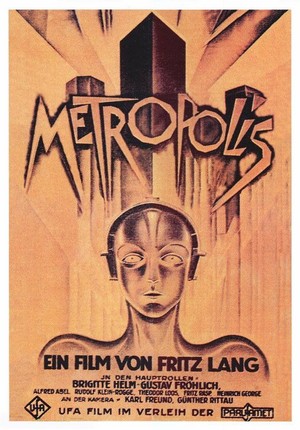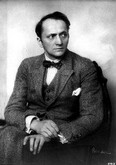
Metropolis (1927)
The Complete Metropolis

Raiting: ![]() 8,3 /10
8,3 /10
Genre: Scifi
Director: Fritz Lang
Stars: Alfred Abel, Brigitte Helm and Gustav Fröhlich
Country: Germany
Release date: 6 February 1927
Length: 153 minutes / 80 minutes (Giorgio Moroder version) / 145 minutes (restored version)




